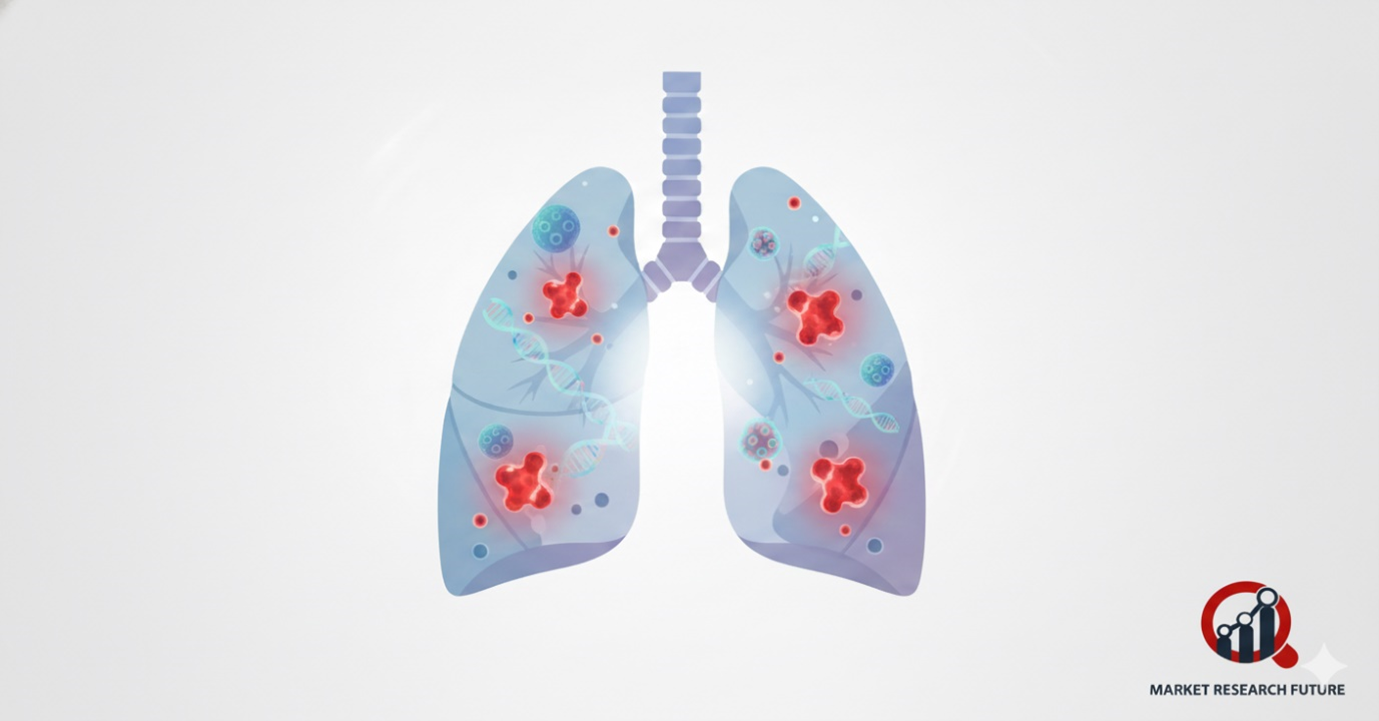Lung Cancer Market on the Rise: How Innovation Is Driving the Next Wave of Treatment

Lung cancer is still one of the most fatal diseases and the most common form of cancer, and is still one of the most widespread public health challenges. Still, relentless progress in the innovation of treatment, personalized medicine, and the technology used in the diagnosis of lung cancer is changing the lung cancer market worldwide.
Market Overview
The global lung cancer market, due to increasing awareness concerning the disease, advancements in technology, and the increasing burden of the disease worldwide, has shown considerable progress in recent years, and every market has to have their Covid-19 impact. In the case of lung cancer, even though COVID-19 was a respiratory disease and probably lung cancer was covered with lockdowns, the focus of diagnosis on lung cancer apparently increased. COVID-19 probably had a positive impact on the diagnosis of lung cancer.
Market analysis estimates the global lung cancer market to be around USD 30.57 billion in 2030, with a market growth of 9.11% 9.11% growth is estimated with the global population aging, the global population increasing access to cancer diagnostic tools, and individuals being diagnosed with lung cancer and the market decreasing due to the panic of lung cancer.
Key Market Drivers
Rising Prevalence of Lung Cancer - The increasing frequency of lung cancer across developed and emerging economies continues to fuel the demand for novel treatment and diagnostic alternatives.
Aging Population - With global increases in life expectancy, the likelihood of older adults developing lung cancer grows, and this sustained market growth.
Smoking and Environmental Factors - Even with worldwide anti-smoking initiatives, the consumption of tobacco and pollution continues to be the major triggers for lung cancer, and this is particularly so in developing countries.
Advancements in Healthcare Infrastructure - Better access to diagnostic imaging, cancer treatment facilities, and targeted treatments is streamlining the expansion of this market.
Supportive Government Policies - Government initiatives to fund early lung cancer detection and tailor comprehensive treatment plans, alongside awareness-raising and health system reforms, truly support accessible lung cancer management.
Evolving Competitive Landscape - Major players of the pharmaceutical and biotechnology sectors vie to provide new targeted treatments and immunotherapy alternatives.
Technological Advancements Transforming the Market
Growth in the lung cancer market continues to be driven by innovation. New technologies improve the chances of survival and lessen the side effects from the treatments.
- Molecular Diagnostics - Advanced genomic profiling assists in the determination of specific mutations and thereby helps oncologists in identifying the most appropriate treatment.
- Immunotherapy – New drugs that help the immune system attack cancer cells are changing the treatment landscape, with numerous checkpoint inhibitors receiving regulatory approvals.
- Targeted Therapy – Precision medicines targeting specific cancer-driving proteins treat cancer more effectively with less toxicity.
- Robotic-Assisted Surgery – For lung cancer surgery, robotic systems increase surgical precision, decrease recovery time, and lessen complications.
Future Outlook
There is a positive outlook for lung cancer with the rapid pace of research and innovations. More and more cancer treatment companies are developing drugs using biomarkers, AI-focused cancer detection systems, and non-invasive liquid biopsies that detect cancer at earlier stages. Additionally, the rapid pace of research for lung cancer treatment, with the increased focus on patient-centered care, will redefine lung cancer and its treatment.
Conclusion
Lung cancer is almost ready for major transformational innovations. Access and affordability challenges exist, but major innovations, early detection measures, and a robust pipeline of research will enable a future where lung cancer is highly manageable and likely preventable. Improvements and partnerships across the entire healthcare system will position the next decade for remarkable improvements for the patients and the healthcare industry.